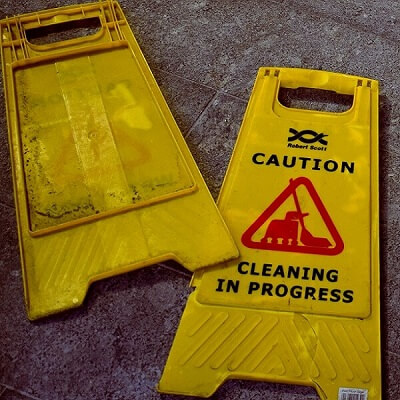There are many jobs that may require employees to drive between sites or use company vehicles. This is especially true of certain lone worker roles. Driving, however, can be a risky activity, and driving as part of a job can increase these dangers. As such, driver safety is crucial. Here are some tips to help employees stay safe when driving.
The Importance of Supporting Driver Safety
As an employer, you have the responsibility of ensuring your employees’ safety. This includes time spent travelling between jobs, especially if using a company vehicle. If an accident occurs as a result of complacency on the employer’s part, it may result in legal action.
Employees also have a responsibility for their own safety. They must follow guidance and act in accordance with the law. Failing to do so could affect the employer’s reputation and bring the business into disrepute. Furthermore, employees are required to act in a manner that will not cause harm to themselves or others.
Before Travelling…
Sometimes driver safety can be improved before an employee even gets into the car. Perhaps one of the most important things is to ensure the employee is well-rested and alert. Fatigue is a significant contributor to road crashes, with 1 in 8 drivers admitting to falling asleep at the wheel.
If an employee is not well-rested, it is advised to consider alternative means of transport. Could a taxi be utilised to transport them to the worksite? Is there a colleague who could drive instead?
Vehicles should also be carefully maintained to ensure they are safe to use. Driver safety is often linked to the condition of the vehicle they are using.
These considerations are especially important if the driver will be in control of a large vehicle. Heavy Goods Vehicles (HGVs) can cause shocking amounts of damage if involved in an accident.
HGV drivers also ranked amongst our Top 5 Most Dangerous Jobs in the UK.
When Travelling…
Of course, there are also measures that can be taken to improve driver safety while travelling. Often, these measures may seem obvious, but it is crucial that drivers adhere to road safety guidance.
Wear Seatbelts
Despite seatbelts being a legal requirement, as many as 5.2% of drivers still refuse to wear them. However, seatbelts can make all the difference if you do experience a road accident. Refusal to wear a seatbelt may also lead to drivers being pulled over by the police, which could impact the employer or cause an employee to lose their job.
Take Breaks
This driver safety tip is especially important if you drive long distances. Lorry drivers, for example, are required to travel for hours at a time, which can have an impact on fatigue and health. Employees should stop every couple of hours to stretch their legs and rehydrate without also having to focus on the road.
Avoid Distractions
When driving, it is crucial that your focus be on the road ahead. Do not be tempted to fiddle with your phone or take a bite from your sandwich while driving. If you have an incoming call from your employer, put driver safety first and pull over to answer it.
Consider Road Conditions
Just because you can drive at fifty miles per hour doesn’t mean you should. Be mindful of road conditions and be aware of hazards. Lower your speed if the roads are wet and remember that country roads are often characterised by blind corners. If you are required to drive when it gets dark, be aware of other road users and consider your speed.
Between Journeys…
Often you will not be the only employee using company vehicles. As such, it is incredibly important that any faults in the vehicle be reported immediately. This allows the employer to perform repairs and maintenance on vehicles between jobs.
Moreover, a log should be kept of all company vehicle usage. This will help to keep track of which vehicles require maintenance more often as well as monitoring the workers most likely to use them.
It may also be beneficial for you to report unsafe routes to your colleagues so that they know to avoid them.
When using your own vehicle, you should perform regular checks. Breaking down on your way to work – or whilst travelling between jobs – can be a stressful experience. It could also have a negative impact on your employer.
Lone Alarms for Lone Workers
One way to support not only driver safety but the safety of all lone workers is to equip them with lone alarms. These handy devices allow employees to call for help at the simple press of a button. They also come fitted with GPS locators and fall detectors for extra peace of mind.
To find out more about our products, take a look at our Features page. If you have any questions, please do not hesitate to get in touch using our helpful form. Alternatively, you can call us on 0800 03 08 222.
Editor’s Note: This article was updated on 24th April 2024 to reflect current information.













